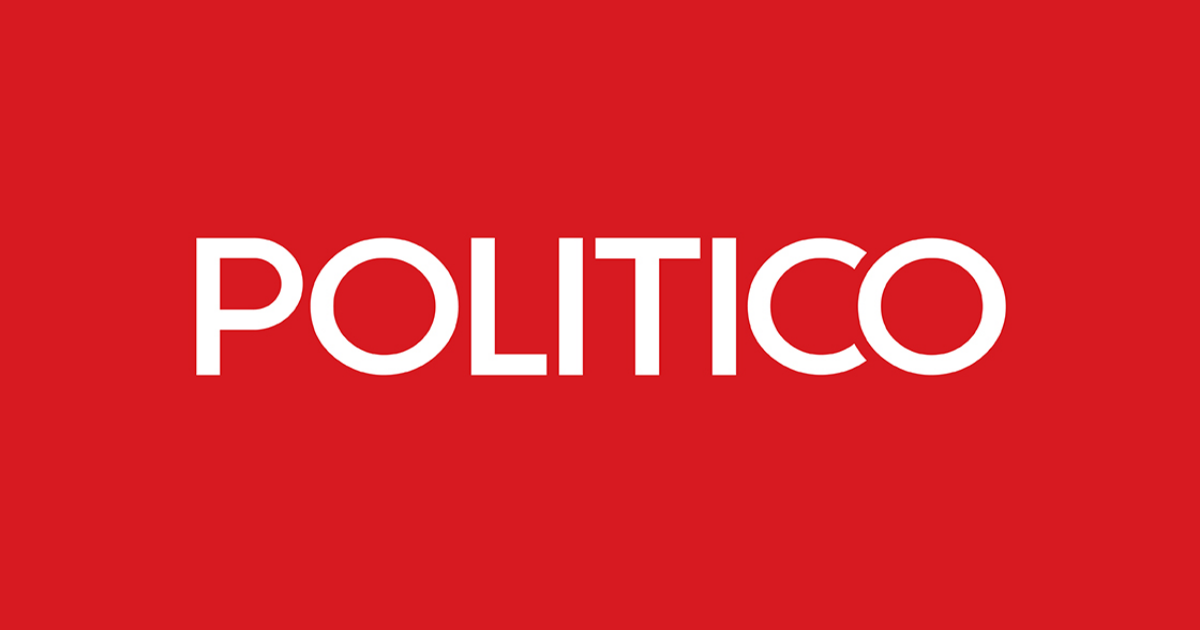
OZ CONFIRMED — Dr. Mehmet Oz, the heart surgeon turned daytime TV star, was confirmed Thursday to lead the Centers for Medicare and Medicaid Services, POLITICO’s Robert King reports.
The Senate voted 53-45, along party lines, to confirm Oz, who has touted controversial therapies and pushed unproven theories about Covid-19 cures, including hydroxychloroquine.
As the new head of the nation’s largest health insurance programs — Medicare, Medicaid and the Affordable Care Act insurance exchanges — he’ll oversee more than $1.5 trillion in federal spending serving over 160 million Americans.
He takes over leadership at a tumultuous time, just after 10,000 people across HHS lost their jobs earlier this week amid a massive reorganization. The agency initially announced 300 people were fired at CMS, but the extent of the impact remains unclear.
The reorganization means Oz must navigate complex regulatory issues with fewer staff than his predecessors. Current and former employees have warned that the firings will impact the agency’s key functions.
HHS is also shuffling programs under CMS’s umbrella, including some under the Administration for Community Living.
What’s next: Oz will face pressing regulatory decisions as early as next week. The insurance industry is awaiting a final rule — expected in early April — that lays out payment rates for Medicare Advantage plans, the privately run alternative to Medicare. In January, the Biden administration’s CMS had proposed a 4.3 percent increase to payments for 2026, a reversal from slight cuts in 2025 and 2024.
Oz has been a staunch supporter of Medicare Advantage, which more than 30 million older Americans use, but during his confirmation hearing, he said he wants to curb overpayments to such plans.
Even so: The Medicare Advantage industry hopes Oz’s confirmation bodes well for their chances of a pay rate increase.
“Dr. Oz takes the helm at a pivotal moment, as millions of Medicare Advantage beneficiaries face higher costs and reduced benefits after two straight years of cuts to the program,” Mary Beth Donahue, president and CEO of the Better Medicare Alliance, said in a press release following Oz’s confirmation. “It’s critical that Medicare Advantage is adequately funded to ensure seniors continue receiving the care they need.”
WELCOME TO FRIDAY PULSE. If you’re a current or former HHS employee who can speak to the changes at the agency, we’d love to hear from you. Send your tips, scoops and feedback to [email protected] and [email protected], and follow along @Kelhoops and @ChelseaCirruzzo.
A message from Optum Rx:
As rising drug prices set by pharmaceutical manufacturers impact pharmacies, Optum Rx is setting a new standard for transparency. We’re aligning payment models to better support pharmacies. That means clear prices for patients, and predictable payments for pharmacies. Our move to cost-based payment models for pharmacies aims to help alleviate drug shortages, improve access to medications and deliver a better pharmacy experience for consumers. That’s the power of transparency. Learn more.

HHS EXPLAINS — The Trump administration is circulating a memo to lawmakers explaining that the mass layoffs this week at HHS were needed to rein in bureaucratic bloat and a budget that ballooned during Joe Biden’s presidency, Chelsea reports.
“Despite only having 28 divisions, HHS had 41 chief information officers,” a memo obtained by POLITICO says in making the case that there was ample room to seek efficiencies. It referenced “dozens” of IT and HR departments, 1,400 external affairs officers, 100 communication offices and eight senior finance officials as examples of inefficiencies.
The memo says the HHS budget increased by nearly 40 percent during Biden’s four years in office, while staffing increased by 17 percent. It confirms that about 10,000 employees lost their jobs. The Trump administration has bought out or removed about the same number, bringing total HHS staffing to around 62,000 — a 25 percent reduction since President Donald Trump took office.
The agency began informing workers Tuesday that they’d been axed.
Key context: Leaders of the Senate Health, Education, Labor and Pensions Committee have called on HHS Secretary Robert F. Kennedy Jr. to appear before them to explain the cuts, though he has yet to say whether he will. HHS staff will brief the House Energy and Commerce Committee next week.
HHS did not respond to requests for comment.
WALKING BACK SOME FIRINGS — HHS will reinstate some employees and programs that were cut amid the Trump administration’s gutting of the agency, said Secretary Robert F. Kennedy Jr. on Thursday.
“At DOGE, we talked about this from the beginning … we’re going to do 80 percent cuts, but 20 percent of those are going to have to be reinstalled, because we’ll make mistakes,” Kennedy told reporters.
Kennedy spoke alongside Agriculture Secretary Brooke Rollins at an elementary school in Alexandria, Virginia, making his first comments in a press gaggle since his confirmation in February to the nation’s top health post, POLITICO’s Jordan Wolman reports.
“If we make mistakes, we’re going to admit it, and we’re going to remedy it,” Kennedy added.
Why it matters: The comments come after HHS cut thousands of employees earlier this week — and they’re a notable admission from a top administration official that not all the slashing led by Elon Musk’s government efficiency team is beneficial for federal operations.
Many employees who were let go worked at the Food and Drug Administration, the Centers for Disease Control and Prevention and the National Institutes of Health.
HHS did not respond to a request for additional comment.
Key context: Kennedy defended the cuts Thursday, saying they helped address “tremendous redundancy” in health agencies and employees were “not doing their jobs.”
A message from Optum Rx:
PHARMA BASKS IN REPRIEVE — The pharmaceutical industry was in quiet celebration Thursday as the rest of the U.S. economy reeled from President Donald Trump’s sweeping tariffs, POLITICO’s David Lim and Adam Cancryn report.
The drug lobby was one of the few to escape Trump’s trade wrath, in a stunning turn of fortune for an industry that had fallen out of favor with Republicans and Democrats alike.
Pharma executives acknowledged the victory could be short-lived — but it was born out of fierce lobbying and an extended effort to get back into Trump’s good graces. The effort to avoid the tariffs was spearheaded by generic drug companies that operate on thin profit margins and could ill afford a new tax that would raise the cost of their products, according to a pharmaceutical lobbyist granted anonymity to discuss the influence campaign.
Those drugmakers, which produce copycat medicines, have faced price pressures that have contributed to drug shortages in recent years — a fact communicated during meetings with the Trump administration.
“You’ve got to give the generic space a lot of credit,” the lobbyist said. “They were most at risk. They were the tip of the spear … they had meetings all the way up to the presidential level.”
Key context: The concerted push followed months of work by the broader industry to rebuild relationships with Trump and his aides — including pilgrimages to Mar-a-Lago and seven-figure donations to the president’s inaugural committee.
Even so: Drug executives’ jubilation Thursday was tempered by the reality that fresh setbacks could still be on the horizon. Many health care lobbyists anticipate the Trump administration will soon open an inquiry into the effect of drug imports on national security, which could lead to more durable tariffs.
POLITICO’s Natalie Fertig reports on a House bill that would give the VA $30 million to conduct research into treating afflictions like PTSD with psychedelic drugs.
POLITICO’s Meredith Lee Hill reports on the White House pushing lawmakers to embrace President Donald Trump’s sweeping new global tariffs.
STAT’s Isabella Cueto reports on the uncertain future of mental health and substance use hotlines.
A message from Optum Rx:
Optum Rx is committed to making the pharmacy experience more transparent and simpler. We’re setting a new standard by:
· Introducing cost-based payment models, which will positively impact pharmacies while helping to alleviate drug shortages, improve access to medications and deliver a better pharmacy experience for consumers
· Eliminating up to 25% of prescription reauthorizations to provide easier access to medications for patients and reduce workload for pharmacists and physicians
That’s the power of transparency. Learn more.

